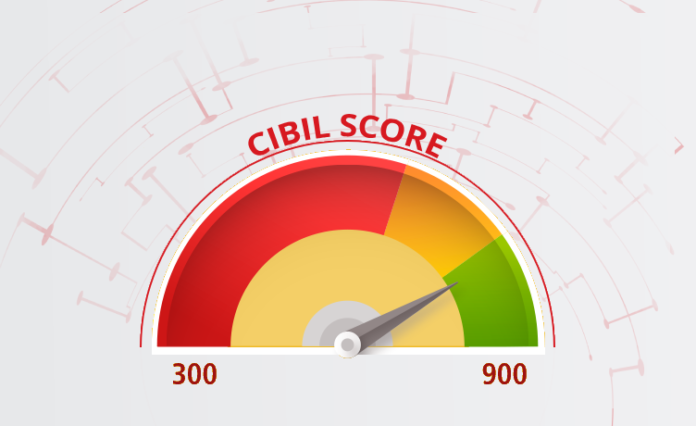In India’s robust financial economy, the need for liquidity is met without valuable assets being a foregone expense. A loan against security is the perfect remedy by enabling borrowers to raise money against their securities as collateral. The mechanism avoids the borrower from being compelled to sell their investments but having access to credit for business or personal needs. If due understanding and planning are undertaken, borrowing against securities can be easy and rewarding.
This article speaks about the concept of loan on security, the process of application, the impact of interest rates on repayment, and the practical use of a loan against securities emi calculator. It is intended to provide step-by-step instructions to Indian borrowers who wish to utilize their investment without affecting their financial health.
Understanding a loan on security
A security loan is a product where borrowers give their securities like shares, mutual funds, bonds, or government securities as security for availing a loan from banks or NBFCs. The largest benefit of such a loan is that the ownership of underlying securities never passes to the lender.
Types of acceptable securities given as collateral
Various financial institutions accept various types of securities as security. Some of the widely used classes are:
- Equity shares listed on recognized stock exchanges
- Units of mutual fund schemes
- Government securities and bonds
- Debentures and company bonds
All of the institutions may have some eligibility conditions, e.g., the quality and marketability of the securities.
Benefits of loan against securities
Borrowing against security without the need to sell assets has numerous benefits:
- Keep ownership and future value on securities
- Quicker loan approval than unsecured loans
- Lower interest paid than unsecured personal loans
- Ability to borrow amount of discretion, usually between 50-85% of value of collateral
- No need to have to sell investments and thus lose the tax-sheltered status of capital gains
These advantages render loans against securities a common source of funding for individuals and companies.
Eligibility and documentation requirements
Prospective borrowers must be aware of the eligibility terms of the lenders prior to taking a loan against securities. Eligibility in most cases hinges on the type of security, creditworthiness of the borrower, and regulatory aspects.
Minimum eligibility requirements are:
- Holding eligible securities in demat mode or physical certificates where permissible
- Minimum holding period of certain securities as specified by the lender
- Acceptable credit score (usually 750 and above is preferable)
- Individual Indians within the country or registered entities
Typically required documents are:
- Identity and residence proof (Aadhaar, PAN card, passport, or voter ID)
- Demat account statement or securities holdings proof
- Current financial statements, if applicable
- Correctly filled and signed loan application form
Referral of clear and complete documents speeds up the sanctioning of the loan.
How to apply for loan against security
Application process is pretty simple and can be done through online or offline mode after visiting a branch.
Steps to apply:
- Value your securities: Determine the current market value and liquidity of your securities in the current market to determine an estimated amount of the loan that can be availed.
- Compare lenders: Search for banks or NBFCs providing decent interest rates and suitable repayment tenure.
- Documents preparation: Collect all the documents to be submitted.
- Application submission: Fill up the loan application form and submit along with documents.
- Appraisal of loan: The lender confirms the quality and value of the securities and your credit score.
- Sanction and disbursement: After sanction, you get the loan amount credited directly into your bank account.
Most important things to remember at the time of application
- Loan to Value (LTV) ratio varies based on risk in securities. Government securities are safer and can be given 85% LTV, while risky equities can only support 50-70%.
- Interest is floating or fixed and affects the total amount of repayment.
Knowing how interest and repayment affect
Interest rates differ with the lender and the kind of securities given. The loan will cost less when taken against securities than when taken as an unsecured personal loan since the loan is secured.
Role of a loan against securities emi calculator
Repayments of such loans are primarily in the form of Equated Monthly Instalments (EMIs). A loan against securities emi calculator assists lenders in projecting monthly instalments, interest paid, and tenor of the loan.
- An EMI calculator takes loan amount, rate of interest, and tenor as inputs.
- It makes it easier to understand affordability and plan finances better.
- Prepayment facilities and how they affect EMI can be verified using the calculator too.
Application of an emi calculator prior to application enables one to make informed decisions, with the loan fit selected being aligned with cash flow abilities.
Precautions and risks
While the security-based loan is a benefit, the borrower should remain aware of the risks.
- In case the market value of the securities pledged drops below a certain point, the lender might demand more collateral or the loan to be repaid.
- Default in repaying the loan can result in the sale of the pledged securities by the lender to recover dues.
- Volatility in the market directly impacts the value of the collateral and security of the loan in the long run.
Precautionary measures
- Closely monitor securities market to pre-estimate margin calls.
- Have emergency funds to take care of any margin requirement.
- Select a term and size of the loan consistent with repayment capacity.
- Avoid pledging very illiquid or very volatile stocks.
Cautiousness and anticipation minimize loan-linked risks to a considerable extent.
Applications of loans against securities
These loans have very common uses due to their flexibility and fast disbursal:
- Working capital or business expansion requirements
- Medical charges or changes
- Individual spending or vacations
- High-interest debt refinancing
As the securities are not leveraged, the consumers can continue to pay dividends, bonuses, or interest on the collateral assets.
Conclusion
Loan against security is an excellent financial product in India to take a loan without having to give away valuable assets. It is convenient, low interest, and accessible credit, hence apt for diversified finance needs. The use of the loan against securities emi calculator is necessary by the borrower to know the repayment pattern and arrange finance accordingly.
The lenders have to carefully analyze the collateral, lender conditions, and repayment conditions while remaining vigilant about the fluctuations in the market to accrue maximum returns and protect interests. In the present Indian economic environment, using securities to avail loans is a safe way to fulfill financial requirements without depriving long-term investment schemes.








